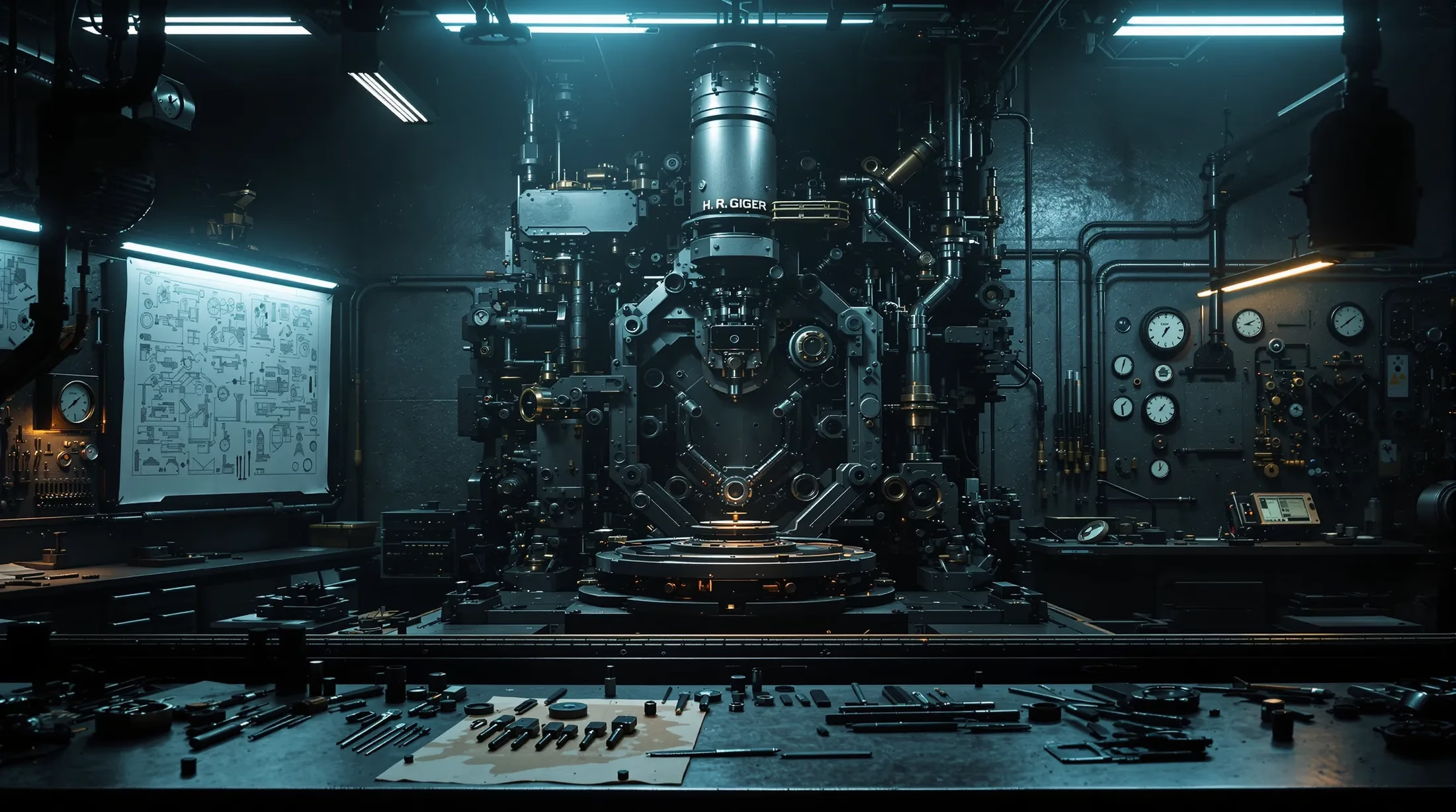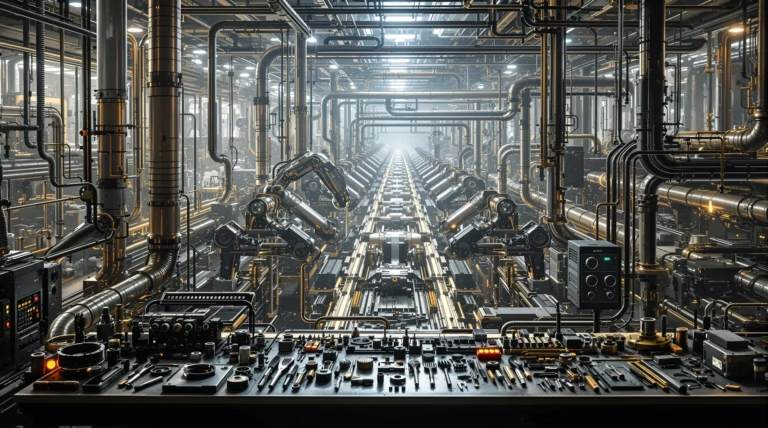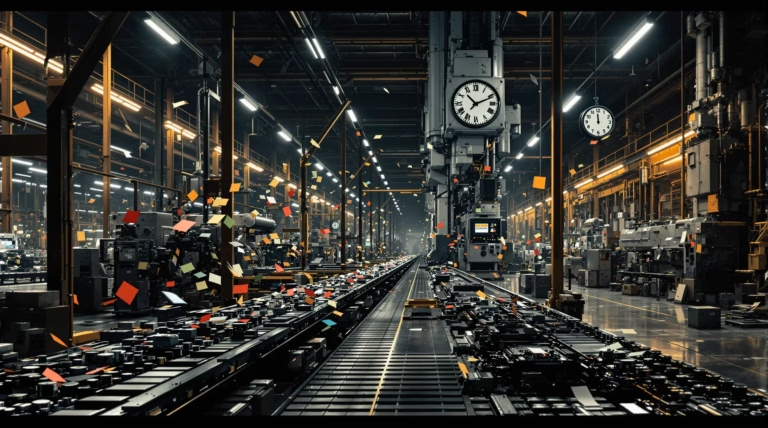Machinist: What They Do, Skills Required, and Career Opportunities
Discover the intricate world of machining, where precision meets craftsmanship in creating the components that power modern industry. From aerospace to medical devices, machinists play a crucial role in manufacturing the parts that keep our world running.
What Does a Machinist Do?
A machinist is a skilled tradesperson who specializes in fabricating, assembling, and repairing machinery parts with precision. Working primarily in factory settings, machinists operate sophisticated machinery to produce components that meet exact specifications. They transform raw materials like metal, plastic, and composite materials into functional parts that are essential for various industries.
The core of a machinist’s work involves operating machine tools such as lathes, milling machines, grinders, and Computer Numerical Control (CNC) machines. These professionals read and interpret complex technical blueprints, engineering drawings, and computer-aided design (CAD) files to understand the precise dimensions and tolerances required for each component they produce. Accuracy is paramount in their work, as even minor deviations can render parts unusable or compromise the functionality of the final assembled machinery.
Overview of Machinist Responsibilities
- Setting up and calibrating machine tools
- Selecting appropriate cutting tools and speeds
- Securing workpieces before operations
- Monitoring machines for quality control
- Measuring and testing completed products
- Performing routine equipment maintenance
- Programming CNC machines
- Participating in process improvement initiatives
Types of Machinists and Their Roles
| Specialist Type | Primary Focus |
|---|---|
| CNC Machinist | Programming and operating computer-controlled machinery |
| Maintenance Machinist | Repairing and maintaining industrial equipment |
| Tool and Die Maker | Crafting specialized tools and manufacturing devices |
| Production Machinist | High-volume manufacturing operations |
| Prototype Machinist | Creating first-of-kind parts during product development |
Essential Skills Required for Machinists
Success as a machinist requires mastering a diverse set of technical abilities and practical knowledge. Professionals in this field must develop precision-oriented skills that allow them to fabricate, assemble, and repair machinery components with exceptional accuracy—often working within tolerances as tight as .0001 of an inch.
Modern machinists work at the intersection of traditional craftsmanship and advanced technology. They must be proficient in operating sophisticated machinery while understanding the fundamental principles of metalworking and mechanical design.
Technical Skills for Machinists
- Blueprint reading and interpretation
- Mathematical proficiency (geometry, trigonometry, algebra)
- Manual and CNC machine tool operation
- Computer programming and CAD/CAM software operation
- Material science knowledge
- Quality control and precision measurement
- G-code programming
- Coordinate measuring machine operation
Soft Skills for Success in Machining
While technical abilities form the foundation of machining expertise, soft skills play a crucial role in career advancement and workplace effectiveness. Attention to detail stands as the cornerstone of success, as even the smallest oversight can result in costly errors or component failure. Strong problem-solving abilities enable machinists to effectively troubleshoot production issues and develop innovative solutions to manufacturing challenges.
- Attention to detail – ensuring precision in every component
- Problem-solving capabilities – troubleshooting and developing solutions
- Time management – balancing multiple projects and deadlines
- Communication skills – collaborating with engineers and team members
- Physical stamina – maintaining performance during long periods of standing
- Spatial awareness – visualizing three-dimensional component relationships
- Adaptability – embracing new technologies and techniques
- Mentoring abilities – supporting team development
Career Opportunities for Machinists
The manufacturing sector presents diverse and evolving opportunities for skilled machinists. As essential contributors to modern production processes, machinists enjoy stable employment prospects across numerous industries. The integration of CNC technology has transformed the field, creating specialized roles that combine traditional craftsmanship with advanced digital manufacturing techniques.
Today’s machining careers span from entry-level operators to specialized programmers and supervisors. The sophistication of modern manufacturing equipment has expanded career pathways, particularly for those who blend mechanical aptitude with computer programming expertise. Despite automation trends, qualified machinists remain in high demand, driven by the increasing need for precision components in industries ranging from consumer electronics to aerospace applications.
Industries Employing Machinists
| Industry | Focus Areas |
|---|---|
| Aerospace | Flight-critical parts with exceptional tolerances |
| Automotive | High-volume production and prototype development |
| Medical Devices | Specialized materials and regulatory compliance |
| Defense | Military equipment and specialized components |
| Power Generation | Industrial equipment and system components |
Advancement Opportunities in Machining
- Entry-level operator to qualified machinist
- CNC programming specialist
- Quality assurance specialist
- Prototype development expert
- Production supervisor or team leader
- Manufacturing engineer
- Machine shop owner/entrepreneur
- Additive manufacturing specialist
- Robotic system integrator
Training and Certification for Machinists
The path to becoming a skilled machinist combines formal education with hands-on experience. While a high school diploma serves as the minimum requirement, modern manufacturing complexity demands comprehensive preparation. Foundation skills include mathematics, blueprint reading, metalworking, and drafting – essential knowledge for understanding precise manufacturing processes.
Long-term on-the-job training programs offer a practical route into the profession, allowing aspiring machinists to earn while learning under experienced mentors. Manufacturer-sponsored apprenticeships provide another structured pathway, combining paid shop training with technical instruction through partnerships with community colleges and vocational schools. This comprehensive approach creates a solid bridge between theoretical knowledge and practical application.
Machinist Training Programs and Courses
Formal education for machinists encompasses specialized programs that build theoretical knowledge and practical skills. Community colleges and technical schools offer certificate and associate degree programs in machining technology, precision manufacturing, and CNC programming. These programs typically last 6-24 months and include comprehensive coursework in blueprint reading, CNC programming, geometric dimensioning, material science, and manufacturing processes. Through laboratory work, students gain hands-on experience with both manual and computer-controlled equipment.
- Certificate programs – 6-12 months of focused technical training
- Associate degrees – 18-24 months of comprehensive education
- Apprenticeships – 3-4 years combining work and classroom instruction
- On-the-job training – 8,000 hours of practical experience
- Continuing education – specialized courses in advanced technologies
Certification and Licensing for Machinists
| Certification Type | Provider | Focus Areas |
|---|---|---|
| NIMS Certifications | National Institute for Metalworking Skills | CNC programming, machining operations, quality control |
| Mechanical Engineering | ASME | Precision manufacturing standards |
| Software Specific | Various Vendors | CAD/CAM programs (Mastercam, SolidWorks) |
| Quality Systems | Industry Standards | AS9100, ISO 13485 compliance |
Machinist Salary and Job Outlook
The machining profession offers competitive compensation within the skilled trades sector. As of 2023, machinists and tool and die makers earn a median annual salary of $53,180 ($25.57 hourly). Beyond base pay, professionals typically receive comprehensive benefits including health insurance, retirement plans, and overtime opportunities.
The industry currently maintains approximately 357,000 positions across various sectors. While projections for 2023-2033 show minimal overall change, the field requires filling roughly 35,400 positions annually due to retirement turnover, creating substantial opportunities for new entrants despite automation impacts.
Average Salary for Machinists
- Entry-level positions – $35,000-$40,000 annually
- Experienced machinists (5+ years) – $50,000-$65,000 annually
- Specialists in aerospace/medical – $70,000+ annually
- NIMS certified professionals – 7-12% higher earnings
- Overtime potential – 15-25% additional income
- Geographic premium – 10-15% above average in manufacturing hubs
- Specialized skills (multi-axis CNC, EDM) – premium compensation
Future Job Prospects for Machinists
The machinist job market through 2033 shows stability rather than expansion, with a significant demand driven by workforce replacement needs. While overall employment growth remains minimal, the industry requires filling approximately 35,400 positions annually, primarily due to retiring workers. This creates substantial opportunities for new entrants who combine traditional machining expertise with digital technology skills, particularly in CNC programming and integrated manufacturing systems.
- Manufacturing-intensive regions (Midwest, Southeast) maintain strong demand
- Emerging manufacturing hubs in South Carolina and Tennessee offer new opportunities
- High-demand sectors include aerospace, defense, medical devices, and precision instrumentation
- Specialized roles command premium wages and enhanced job security
- Advanced materials expertise and multi-axis machining skills provide competitive advantages
Tools and Equipment Used by Machinists
Modern machining operations utilize sophisticated equipment that combines traditional manual tools with advanced computer-controlled systems. These precision instruments represent substantial investments for manufacturing facilities and demand skilled operators for effective utilization. The integration of CNC technology has transformed daily operations, requiring machinists to develop programming expertise alongside mechanical competencies.
Common Tools and Machines in Machining
| Equipment Type | Primary Functions | Applications |
|---|---|---|
| Lathes | Rotating workpiece cutting | Shafts, pulleys, threaded components |
| Milling Machines | Multi-point cutting | Flat surfaces, contours, slots |
| Grinding Machines | Surface finishing | Hardened materials, precision surfaces |
| CNC Centers | Integrated operations | Complex multi-function machining |
Safety Practices in Machining
- Mandatory PPE: safety glasses with side shields, steel-toed boots, hearing protection
- Strict protocols regarding loose clothing, jewelry, and unsecured hair
- Proper workpiece mounting and tool selection procedures
- Machine guarding and emergency stop systems
- Comprehensive lockout/tagout procedures
- Ventilation and respiratory protection for metalworking fluids
- Regular safety training and updates







